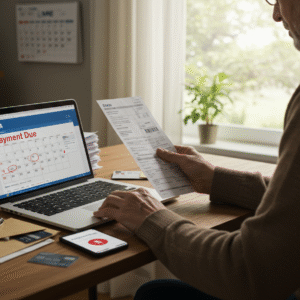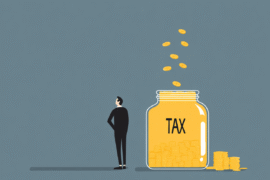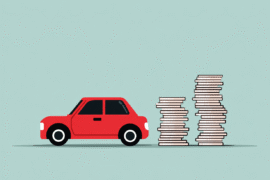This article may contain references to products or services from one or more of our advertisers or partners. We may receive compensation when you click on links to those products or services. Nonetheless, our opinions are our own.
The information presented in this article is accurate to the best of our knowledge at the time of publication. However, information is subject to change, and no guarantees are made about the continued accuracy or completeness of this content after its publication date.
- Highlights
- Introduction
- Debt Collectors Can’t Call You More Than 7 Times a Week
- Debt Collection
- Federal Laws That Govern Debt Collectors
- State Laws That Affect Debt Collection
- Illegal Behavior and Consumer Protections
- Consumer Rights and Actions
- Summary of Debt Collection Laws and Your Rights
- Frequently Asked Questions
- Recommended Reads
Highlights
- Debt collection follows both federal and state rules, and the Fair Debt Collection Practices Act (FDCPA) is one of these. It keeps people safe from unfair and harsh ways of getting money back.
- The Consumer Financial Protection Bureau (CFPB) and the Federal Trade Commission (FTC) are the ones who check that these laws are being followed.
- When a debt collector contacts someone, they must send a letter that has the creditor’s name and the full amount that must be paid.
- State rules add more to federal rules. They can change what happens with credit reporting, how long you have to be taken to court, and what steps can be taken to get money back.
- Debt collectors cannot bother people, lie, or use any unfair ways when trying to collect money.
- A person can fight back if they do not agree with a debt. They can ask for proof and tell the right groups if someone breaks these rules.
Introduction
Debt collection in the United States has to follow both federal and state laws. These laws are designed to protect people. A main law in this area is the Fair Debt Collection Practices Act (FDCPA). It lays out clear rules on how debt collectors can reach out to you. The FDCPA requires debt collectors to send written notices. It also prevents them from harassing or deceiving people. These rules ensure that communication is clear and honest at all times.
When people understand these laws, they feel more confident about how to respond when someone tries to collect a debt. This knowledge also helps protect their rights. Being informed can prevent mistreatment and make debt collection fair and just.
Debt Collectors Can’t Call You More Than 7 Times a Week
According to the Consumer Financial Protection Bureau, debt collectors cannot call you more than seven times in seven days about the same debt. If you talk to them on the phone, you must wait another seven days before you can call again. This rule applies to each debt you have, though some, such as student loans, may be grouped. Missed calls, voicemails, and even call attempts count toward this limit unless you have given permission or there is a legal reason. Collectors also cannot call you outside of 8 a.m. to 9 p.m. or contact you at work if you have asked them not to. These rules aim to prevent harassment and ensure fairness.
Debt Collection
Debt collection is a part of how money moves in the world. It helps those who lend money get back what people owe. A debt can come from things like medical bills, credit cards, or home loans. It can also come from money owed by businesses. At first, the person or company you owe tries to get the money from you. If that does not work, they may send the debt to someone else to collect.
State laws often make a difference between consumer debt and business debt. Consumer debt is money used for your own, family, or household needs, and it falls under the FDCPA. Business debt is not usually included and is handled by state laws.
Who Qualifies as a Debt Collector?
A debt collector is an individual or a company that seeks to recover money you owe on behalf of another person or business. This can include an outside group, a company that purchases debts, or a government agency that works to recover what you owe.
According to the FDCPA, if a creditor uses a different name for their business to collect debt or hires someone else for this purpose, that party is considered a debt collector under the law. However, if the creditor uses its name to collect debt, it is not classified as a debt collector according to FDCPA guidelines.
Debt buyers are individuals or companies that purchase unpaid accounts for less than the amount owed. When they acquire these accounts, they assume ownership of the debt. They are also responsible for trying to collect the money. In some cases, government agencies can collect owed funds. This may occur with student loans or unpaid taxes. Sometimes, the government itself will seek to recover the money.
Types of Debt Commonly Collected
- Credit Card Debt: This means money you owe because your credit card bill is not paid, or you have spent more than your card’s limit.
- Medical Bills: These are health care costs you still need to pay, and your insurance does not cover them.
- Student Loans: This is the money you still have to pay for your education from federal or private student loans.
- Unpaid Taxes: These are taxes you have not paid yet, which can be from the federal, state, or local government.
Other common debts are things like personal loans, home loans, and unpaid bills for things like water or electricity. Debts for a business are handled by different legal steps and are not covered by FDCPA protections.
Voted "Best Overall Budgeting App" by Forbes and WSJ
Monarch Money helps you budget, track spending, set goals, and plan your financial future—all in one app.
Get 50% OFF your first year with code MONARCHVIP
Federal Laws That Govern Debt Collectors
The Fair Debt Collection Practices Act
The FDCPA says what debt collectors can and cannot do by law. Collectors have to give clear details about the debt, like the amount you owe and the name of the first creditor. They are not allowed to bother you, lie, or contact you too much.
Communication can only happen during normal hours, which are from 8 in the morning to 9 at night. You cannot get in touch via social media or through other people at other times. These things are also watched closely.
Other Federal Laws and Agencies
| Law/Agency | Regulation Focus |
|---|---|
| FDCPA | Prohibits harassment and deception in collection |
| Fair Credit Reporting Act (FCRA) | Ensures accuracy in credit reporting |
| CFPB | Oversees consumer financial protections |
| Department of Labor | Regulates wage garnishment and benefit protections |
State Laws That Affect Debt Collection
- There are set time limits for when someone can file lawsuits. This is called the statute of limitations.
- The law has rules for how long credit can be on your report.
- Debt validation steps are in place to check if the debt is valid.
- People and companies must follow certain ways when talking with consumers.
Some states have rules that are stricter than the FDCPA. They provide people with more protection. For example, they might require debt collectors to share more information when inquiring about a debt. They may also have rules that limit how often collectors can call or contact someone, which is stricter than what the federal government allows.
How State Laws Vary
State rules can be very different. In some places, using checks with a future date the wrong way or saying you will call the police because someone did not pay can be a crime. Other places say collectors must stop talking to someone after the person says they do not owe the debt in a letter.
You need to know your state’s laws to see what your rights are. This will also help you find out about any extra protections in your area.
Illegal Behavior and Consumer Protections
Prohibited Practices Under the Law
- Threats of hurting someone or talking about legal action that they can’t do
- Use of rude or bad language
- False claims about being arrested, facing the law, or problems with credit reports
- Telling others about the debt or talking to people who should not be involved
Harassment and Abuse
- Call again and again or at hours that are not right
- Use threatening or bad language
- Try to make debtors feel scared or feel bad
It’s important to write down these interactions. If you have a complaint, you can send it to the FTC or CFPB. They will look into it and take action.
Misrepresentation and Deception
- Falsely say they are attorneys or government workers
- Make the amount you owe seem higher than it is
- Say they will take you to court when they do not plan to or do not have the right to
- Give you the wrong idea about what could happen to your credit score or how it will be reported
Legal Requirements for Debt Collectors
- Give a validation notice within five days after the first time you reach out.
- Let the person know the debt amount and tell them who first gave the loan.
- Tell the person they have the right to question the debt.
- Stop trying to collect money if they question the debt, and do not start again until you show proof.
Consumer Rights and Actions
Understand Your Rights
- Ask for proof of a debt
- Challenge if a claim is right
- Stop or cut down on talking with them
- Tell someone if you see bad behavior
- Look for legal help if any rules are broken
What to Do When Contacted by a Debt Collector
Step 1: Check Who the Debt Collector Is
Ask for the name of the company, their phone number, and address. You should also get their license if they have one. Make sure this matches what you have on file. You can also call the first lender to see if this is the same company.
Step 2: Request Written Validation
You need to send a written request within 30 days. Ask them to show you proof of the debt and check that the amount they say you owe is correct.
Step 3: Communicate Strategically
Stay calm and act professionally. Write down the dates, names, and short notes about every time you talk to them. Make your rights clear, but do not share extra details about yourself that you do not need to give.
Step 4: Report Violations
If a debt collector does not follow the law, you can file a complaint with the CFPB, FTC, or your state’s attorney general. Be sure to keep all evidence you have of harassment, lies, or contact in ways that are not allowed.
Summary of Debt Collection Laws and Your Rights
Debt collection laws are here to help protect people. When you know about the FDCPA and the laws in your state, you can be sure that every collection process is done by the rules. It is good to know your rights. You have the right to say a debt is not yours, to ask for proof, and to ask collectors not to call you so much. These steps can help lower the stress that comes from money problems. They also help you make sure collectors do what they should.
Agencies like the CFPB and FTC give extra help if your rights are not respected. When you have the right knowledge and keep good records, you can keep your privacy safe. You can also protect your money and feel more at ease.
Frequently Asked Questions
When can debt collectors call me?
Debt collectors cannot call you at any time of the day. They can only reach out to you between 8 a.m. and 9 p.m. in your local area, as stated by the FDCPA.
What should I do if a debt collector threatens me?
Stay calm. Write down all the details of the threat, like the date and the time. Tell the CFPB or FTC about what happened, and you can think about talking to a lawyer.
How often can debt collectors call?
Debt collectors can call you up to seven times in seven days in a row. They cannot call more than that unless you say that they can or if they need to get back to you about something you talked about before.
How can I dispute a debt I don’t owe?
Send a letter in writing to the debt collector within 30 days of when they first get in touch with you. Ask them to show proof that you owe the debt. Be sure to add your name and other details that show who you are. Keep copies of all your letters and papers.

Reviewed and edited by Albert Fang.
See a typo or want to suggest an edit/revision to the content? Use the contact us form to provide feedback.
At FangWallet, we value editorial integrity and open collaboration in curating quality content for readers to enjoy. Much appreciated for the assist.
Did you like our article and find it insightful? We encourage sharing the article link with family and friends to benefit as well - better yet, sharing on social media. Thank you for the support! 🍉
Article Title: What Debt Collectors Legally Can and Can’t Do Under U.S. Law
https://fangwallet.com/2025/07/30/what-debt-collectors-legally-can-and-cant-do-under-u-s-law/The FangWallet Promise
FangWallet is an editorially independent resource - founded on breaking down challenging financial concepts for anyone to understand since 2014. While we adhere to editorial integrity, note that this post may contain references to products from our partners.
The FangWallet promise is always to have your best interest in mind and be transparent and honest about the financial picture.
Become an Insider

Subscribe to get a free daily budget planner printable to help get your money on track!
Make passive money the right way. No spam.
Editorial Disclaimer: The editorial content on this page is not provided by any of the companies mentioned. The opinions expressed here are the author's alone.
The content of this website is for informational purposes only and does not represent investment advice, or an offer or solicitation to buy or sell any security, investment, or product. Investors are encouraged to do their own due diligence, and, if necessary, consult professional advising before making any investment decisions. Investing involves a high degree of risk, and financial losses may occur including the potential loss of principal.
Source Citation References:
+ Inspo
Consumer Financial Protection Bureau. Debt Collection Rule FAQs, updated October 2021.












































